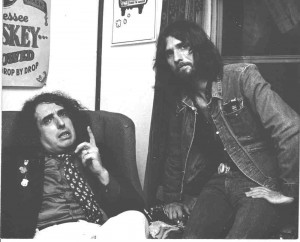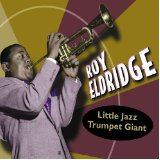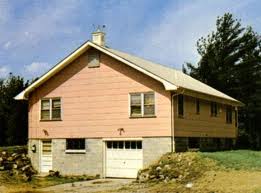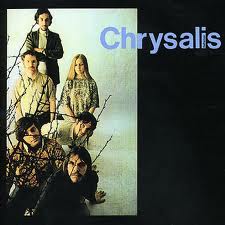On the Saturday night of Memorial Day weekend, Tom Pacheco gave one of his occasional performances in Woodstock, his home town. The Colony Café, as usual for his shows, was jammed. And we got more than our money’s worth.
I’ve known Tom slightly since my days in Phoencia, almost four decades ago, when I used to hear him sing at the White Water Depot in Mt. Tremper (to the left, Tom backstage at the WWD with Tiny Tim) and played pinball with him. (I was a pretty good player on the pinball machines of that era, although Tom usually beat me.) He was away living in Europe (where he still does most of his performances) for a decade. Since he returned to Woodstock, I’ve done my best to catch every show he does.
Tom is a powerful performer and a powerful songwriter. He covers the usual songwriters’ topics–love, lost love, friends, mortality–but adds a strong dose of social commitment unusual in contemporary music. When I hear contemporary “anthems,” songs about our people and the world we live in, they tend to be maudlin and embarrassing. Not Tom’s! He can write a song like “There Was a Time” without sentimentality or haranguing, but it still carries a great deal of power.
When you sign onto his website, you get him singing “Big Muddy River,” a song reminiscent of Pete Seeger’s “Waist Deep in the Big Muddy” except that it really is about flooding and also about politics. (Seeger played banjo on two tracks of Tom’s album “There Was a Time.”) You can hear right away how powerfully Tom performs, and how urgent his communication is. (I once complimented him on his diction, and he told me he works at it a lot.) His guitar playing is strongly rhythmic and compelling. And he even manages to play occasional harmonica without sounding klutzy.
Reading a profile of Tom in last week’s Woodstock Times, I was unsurprised to see that he is a very prolific songwriter. There are always a few old favorites in his shows–“Blue Montana Sky,” “There Was a Time,” “The Hills of Woodstock,” “Solidarity”–but most of the material is new or recent. Sometimes the songs have some rough edges, a line or two that doesn’t work quite right, an image that doesn’t quite fit. He must have gone on to the next song. It doesn’t matter. They still work.
One of the newer songs in Tom’s performance was a tribute to Woody Guthrie. It was completely appropriate. Tom is, in my opinion, the closest thing to Woody Guthrie I know on the current music scene, except that he plays guitar a lot better than Woody did.
Being so prolific, Tom has recorded many albums. The two “Secret Hits” compilations are good places to start getting acquainted with his songs, and of the two I’d try Vol. 2 first. But in any Tom Pacheco recording, as in any performance, the guy’s passion and commitment always come through vividly. He’s one of my favorites, and maybe even one of my heroes.
It was back in the early 1980s. I saw a few small posters–just 8 ½ X 11 sheets–advertising a piano recital in Woodstock by somebody I had never heard of named Morey Hall. He was playing at the Kleinert Gallery, the most prestigious year-round concert venue in Woodstock. But I saw so little publicity for this concert that I suspected he had just hired the place.
I was already writing classical music reviews for the Woodstock Times, and I could have tried to get in touch with someone to get free tickets. But I had an uncertain feeling about this event. So I decided to go and buy my ticket, and if Hall was surprisingly good, I would write about him. My girlfriend Anne and her son Greg, both musicians, went with me.
When we got there, about 15 minutes before concert time, we found two people who had obviously come with Hall, taking money. Nobody else was there. By concert time, two more people had drifted in. So the concert started with seven people in the audience.
The program begin with a baroque suite by the obscure composer Domenico Zipoli. Within seconds it became apparent that Hall couldn’t play worth a damn. The music was quite simple, but even at his cautious tempos he halted and fumbled and made a mess out of everything. The rest of the first half of the program was Schumann’s Fantasy Pieces, Op. 12, music written for a virtuoso pianist. Hall played through the more difficult pieces at around half their proper tempo, but still continued to fumble. It was really painful.
At intermission, Greg and Anne and I went outside so Anne could have a cigarette. As she smoked, I asked the dreaded question: “Are we going back in there?”
“We can’t leave now,” said Anne. “We’re almost half his audience!”
“I know,” I said, “but do we want to hear what he is going to do to Schubert?”
“Right,” said Greg. We left.
This performance was a “tryout” for a recital Hall was about to give at the Albany Institute of History and Art, an institution I have regarded with the greatest suspicion since I heard Hall. My friend Rich Capparela was working at a radio station in Schenectady and living nearby, so I did my best to trick him into going to the concert. He couldn’t make it, but he did some investigation and learned that Hall was studying with Findlay Cockrell, one of the best pianists in the area. He heard that Cockrell had once told Hall not to come for any more lessons, and that Hall had camped out on Cockrell’s front lawn until Cockrell relented.
That was my last thought of Morey Hall until about ten years ago, when I met Cockrell at a recital. A mutual friend introduced us. “Oh, yes,” I said, “the teacher of Morey Hall.” Cockrell looked daggers at me until I started to laugh.
After I explained that I had heard Hall and that he had my full sympathy, Cockrell told me a story about Hall. Through Christian Science circles, Hall arranged an invitation to play for the great pianist Malcolm Frager, who lived less than an hour away from him. Frager listened to Hall play his entire concert, and then said, “Good. Now go home and don’t ever play the piano again.”
There are two aspects of this story that interested me greatly. One was that I had met Frager and found him a very kind man. The other was that Cockrell knew of the incident. There was no way he could have learned it unless Hall had told him.
Hall was a horrible musician, but the worst classical music performer I ever heard was William F. Buckley, Jr. Yes, that William F. Buckley, Jr. Buckley studied the harpsichord for years with the great harpsichordist Fernando Valenti, and he wrote an article about his studies which I read somewhere, probably in the New York Times Magazine. Buckley had become acquainted with Leon Botstein, President of Bard College, and had invited Botstein to be a guest on his TV show “Firing Line.” Botstein, in return, invited Buckley to perform with the Hudson Valley Philharmonic Chamber Orchestra, which he had created and of which he was music director.
Buckley’s participation in the program was curious indeed. He was scheduled to play Bach’s solo “Chromatic Fantasy” (but not the difficult fugue which follows it), then the second and first (of three) movements of Bach’s Concerto in D Minor, in that order. This, I thought, is someone very much aware of his own limitations.
But I was wrong. Buckley couldn’t come close to playing even the easier music he had selected. During the “Chromatic Fantasy,” there were long stretches of the piece in which he played more wrong notes than correct ones. In the Concerto, the orchestra covered some of the musical transgressions–especially since Botstein, highly inept himself at this early stage of his conducting career, had no idea of how to balance an orchestra with the quiet harpsichord. But you could still hear enough to tell it was a disaster. I was amused to see Buckley moving his head closer to the music and squinting as if somehow seeing the notes more clearly would help him play them. It’s a gesture I’d often seen in children’s piano recitals.
Whenever I hear a musical performance I’m not fond of, I think back on these events and sigh.
I’m not a great maker of practical jokes, although I appreciate a good one (my definition: maximum surprise, minimal harm). Recently, I heard from my old friend Amy Hazelrigg, which reminded me of one of my two best practical jokes ever.
Imagine the scene: it was a balmy summer evening in Bloomington, Indiana, where I was attending summer school. I was having a picnic with Amy in the yard outside the house I was renting with my violinist uncle Lenny and two of his friends. They were all doing graduate studies. I was picking up a few extra credits before going home to Brooklyn College. Amy and her family lived right around the corner from us. They were very musical people and had become friends of my uncle’s.
Earlier that week, I had managed to get hold of a very obscure 78 rpm recording of Beethoven’s “Pastorale” Symphony, made in Germany in the late 1920s by the composer-conductor Hans Pfitzner and the Berlin State Opera Orchestra. (It’s now on CD.) My friend Harry Warner had wanted to hear this recording, so I had transferred it to open reel tape for him. I hadn’t sent the tape off yet, and the music seemed ideal for a summer picnic, so I had brought the tape recorder and an extension cord outside and was playing the tape as Amy and I ate sandwiches.
“It’s so clear this evening,” Amy said, “and it’s so quiet here. I wonder if you could hear this music up at Prof. White’s house. He’d probably be able to recognize the recording!” The house was two blocks up our street.
John Reeves White, whose contemporary music class I was auditing, was indeed a formidable musicologist. But there was nothing stiff or formal about him. One day, in his class, he gave us a talk about the Soviet musical system with particular emphasis on “Socialist Realism,” that vague term which the Soviet musical establishment used to contrast with the decadent “formalism” of the West. About 2/3 of the class members were nuns, in habits, all accumulating credits to renew their teaching licenses around the state. White told us he would play for us the winner of the 1951 Stalin Prize in Music, the “Heroic Ballad” by Arno Babajanian. It was a ludicrously poor, splashy piece of movie music, one of those “so bad it’s good” things. He let it play until finally one of the nuns started laughing, which released the rest of the class to collapse in laughter. That was typical of him. (Incidentally, the piece was apparently written as a cynical attempt to get in good favor with the Soviet authorities. The other works of Babajanian I’ve heard are much better music.)
I waited about ten minutes. Then I excused myself to go to the bathroom, went into the house, and called White. He didn’t know me well but “I’m Lenny Felberg’s nephew” identified me quickly. He also knew the Hazelriggs. I told him what Amy had said. He laughed and said he’d be right over.
I went back outside and sat down. About five minutes later, we heard a booming, “Boy, that’s really old!” It was Prof. White, sticking his head over the fence. Amy was startled. White played it like a professional comedian, pretending to figure out each detail as he was listening. “Listen to those horns. They have to be German. But the strings don’t sound good enough to be the Berlin Philharmonic. Must be the State Opera Orchestra.” Then he “figured out” the age of the recording, and finally, from interpretive details, the conductor. Amy was properly amazed. I didn’t confess to the setup until about a week later.
White, incidentally, left Indiana U. to become the successor to Noah Greenberg as music director of the New York Pro Musica Antiqua. He stayed in New York, taught at Hunter College, and died regrettably young, at 60, from a heart attack.
My other best practical joke is more quickly summarized. It was an April Fool’s joke, only last year (2011). I had gone to a poetry reading at the Howland Cultural Center in Beacon, New York, where one of the two featured readers was a fine poet named Barbara Adams. I had heard Barbara read several times before, and I had one of her books of poems. At this Calling All Poets Series, the featured poets read first, with the open mic following. When my turn came, I got up and told the audience that I had a brand new poem I had just written and I thought it was the best one I’d ever written. Then I read one of Barbara’s poems, from a copy I had typed out. When I finished, I heard Barbara’s stricken voice saying, “Leslie!” At that point, of course, I had to confess. “April Fool’s, everyone. That was one of Barbara’s poems, not mine.” She’s still talking about it. And, obviously, so am I.
I was looking through the credits for some Roy Eldridge recordings made in Paris in 1950. One name popped out at me: Barney Spieler, bass. I immediately called my Uncle Lenny in Albuquerque and asked if that could be his friend Bernie. Yes, he said, it was.
I haven’t been able to find any biographical information on Bernard Spieler, except for what Lenny remembered. Spieler was born in Brooklyn, studies bass, and played with Benny Goodman before World War II. He was drafted into the Army. After the War, he rejoined Goodman for at least one 1945 78. Then he used funds from the G.I. Bill to further his bass studies in Paris, which he selected because he preferred the French style of bass playing to the German style. While in Paris, during the half-decade after the War, Spieler played and recorded with numerous touring American musicians. Aside from Eldridge, I have found listings for sessions with Miles Davis (included in a gargantuan set of Davis live recordings), Django Reinhardt (with whom he played second guitar!), and someone named Sam Donahue. Lenny doesn’t know why Spieler used “Barney” as his first name for jazz, except perhaps that it sounded more hip than “Bernie.”
He also met a Dutch woman in Paris and married her. In 1951, while still in Paris, Spieler auditioned for a bass position in the mighty Concertgebouw Orchestra of Amsterdam. He won the job and relocated permanently to Amsterdam.
My Uncle Lenny is Leonard Felberg, now retired from his position as Professor of Violin at the University of New Mexico. Lenny studied violin at Yale University, where his main teacher was the legendary Joseph Fuchs. After he graduated from Yale, he was drafted by the Army. I remember our family visiting Lenny at Fort Dix, where he was going through basic training. He looked at his torn-up hands and said, only half-kidding, “I’ll never be able to play the violin again.”
But the Army had other ideas, At the time, it was supporting a professional quality symphony orchestra, the Seventh Army Symphony, based in Stuttgart, which toured Europe as some kind of prestige item for the Army. It was in existence from 1952 to 1962, founded as a propaganda tool for the U.S. by conductor and composer Samuel Adler. Many of its members went on to successful professional careers, and conductor John Canarina has written a history of the orchestra. Lenny was auditioned for the orchestra and was accepted. During his last tour with the orchestra, in 1956, he played as a soloist, the Tchaikovsky Violin Concerto. The conductor was Henry Lewis, who later went on to fame and notoriety as the conductor of the New Jersey Symphony who was dismissed after he was seen hanging out in a gay bar. We still have a tape of one of those performances, recorded in stereo! And Lenny played in 55th anniversary reunion concert of the orchestra. The late Kenneth Schermerhorn, long time music director of the Nashville Symphony; its new hall is named for him
Near the end of Lenny’s tenure with the Seventh Army Symphony, one of the members of the orchestra spotted an announcement that the Concertgebouw Orchestra was auditioning for a new violinist. Several of the members urged Lenny to go to Amsterdam for the audition but he thought it would be fruitless. So friends of his got together and bought him a round-trip ticket to Amsterdam. Much to his surprise, he won the audition–beating out, among others, the music director’s son–and he took the job as soon as he left the Army.
An American in the Concertgebouw Orchestra was a bit unusual, but Lenny met a fellow Brooklynite, Spieler. They became fast friends. Lenny remembers his friend Bernie as a “Falstaffian” figure, about 6’4″ tall and weighing about 300 pounds. Among their fellow orchestra members, Lenny and Bernie became known as the “Laugh Club” because they were always exchanging jokes.
Spieler loved the summer holidays the orchestra offered (as did all orchestras in those days, before summer festivals became so common). He took every opportunity to go on holiday with his wife. They would get on his motor scooter and drive to campgrounds in France and Spain for weeks.
Lenny left the Concertgebouw after three years, and returned to the U.S. He and Spieler vowed to remain in touch forever. But they never saw each other again. Spieler won another audition and became principal bass of the Concertgebouw. He used his raise in pay to buy his first car, a small Citroen. The following year, he was killed in an auto accident. His wife was also injured but survived.
There is a legend in the Concertgebouw Orchestra that, when the conductor first programmed Mahler’s First Symphony, the principal bass player became unnerved. The third movement of that symphony opens with a bass solo, a minor key version of “Frere Jacques.” It’s so simple that any second year student could play it, but the story goes that the man said, “I’ve never played a solo. I can’t do it.” He got through the rehearsals OK, but at the first performance, when the conductor gave the downbeat to begin the third movement, the bassist fainted and toppled off his high school with the bass on top of him. It may be true or an urban legend, but one thing is for certain: Bernard Spieler was not that player. A solo would never have fazed him.
In fact, Spieler recorded a solo, although not with the Concertgebouw. He played the bass part in a Symphonia Concertante for Viola and Bass by Dittersdorf, recorded for the Telefunken label (issued as SAWT 9429 and 6.41344) with the Amsterdam Chamber Orchestra, conducted by Andre Rieu, now best known as a waltz conductor.
It’s not all that unusual for jazz bass players to have classical music background and experience. Even the great Charles Mingus studied with the principal bassist of the New York Philharmonic. Bernie Spieler went the other way, from jazz to the classics, and never turned back. What a pity he didn’t live to share his memories with us. They would have been fascinating.
The house on Orchard Lane was for sale, and Anne cooperated graciously with the realtor who was handling the property in arranging showings. When it finally sold, the realtor promised to find us a good place to rent, one with good living quarters and enough space to run my business. The first time she took us up to Stoll Road, in Saugerties, I was intimidated by the curvy, uphill road, which I thought would be hard to drive in snow. It was, and eventually I became accustomed to the two or three days every winter when I was stuck in the house.
But the house itself was ideal. It was roomy enough for both Anne’s and my grand pianos (she put hers in the upstairs apartment). And the basement, the famous basement where the “Basement Tapes” were recorded, had more than enough space for my business needs. Lots more. Also, I learned that after the Band members had left the house, it had been rented by a guitar maker, who had used the basement as his workshop. (I used his worktable as a packing table for years.) This house wants to have music in it, I thought.
The availability of all that space encouraged me to expand my LP stock greatly, and eventually it even filled the garage. I had wonderful times there, the first few years. There were frequent parties with music. I once hosted a house concert of Indian music. I got a lot of work done and met friendly neighbors, among whom I remember most the loony Marion Gold and his caviar and the tall, beautiful cellist Ann Sheldon who played electric music with rock groups and died in a puzzling car crash. My neighbor and friend David turned sour and became impossible, but his wife Geraldine Barton, now remarried, remains one of my closest friends.
My relationship with my landlord at Big Pink wasn’t comfortable. Michael, a bass player, was one of the most unpleasant people I’ve met, and many of my phone conversations with him ended with one of us hanging up on the other. (His wife Elizabeth was usually more reasonable.)
Living in the house for 21 years, I was able to see how little maintenance Michael was willing to do on it. When something needed painting, Michael told me he would pay for the paint. Only. So when he decided to sell the house, although I was in a position to buy it, I decided not to. (He first offered it at a high premium price because it was Big Pink, but got no takers. Apparently nobody wants a house as a souvenir.) It would have taken at least $10,000 in repairs. So I bought another house three miles away, and said goodbye to Big Pink with some regret. I’ve never been back.





